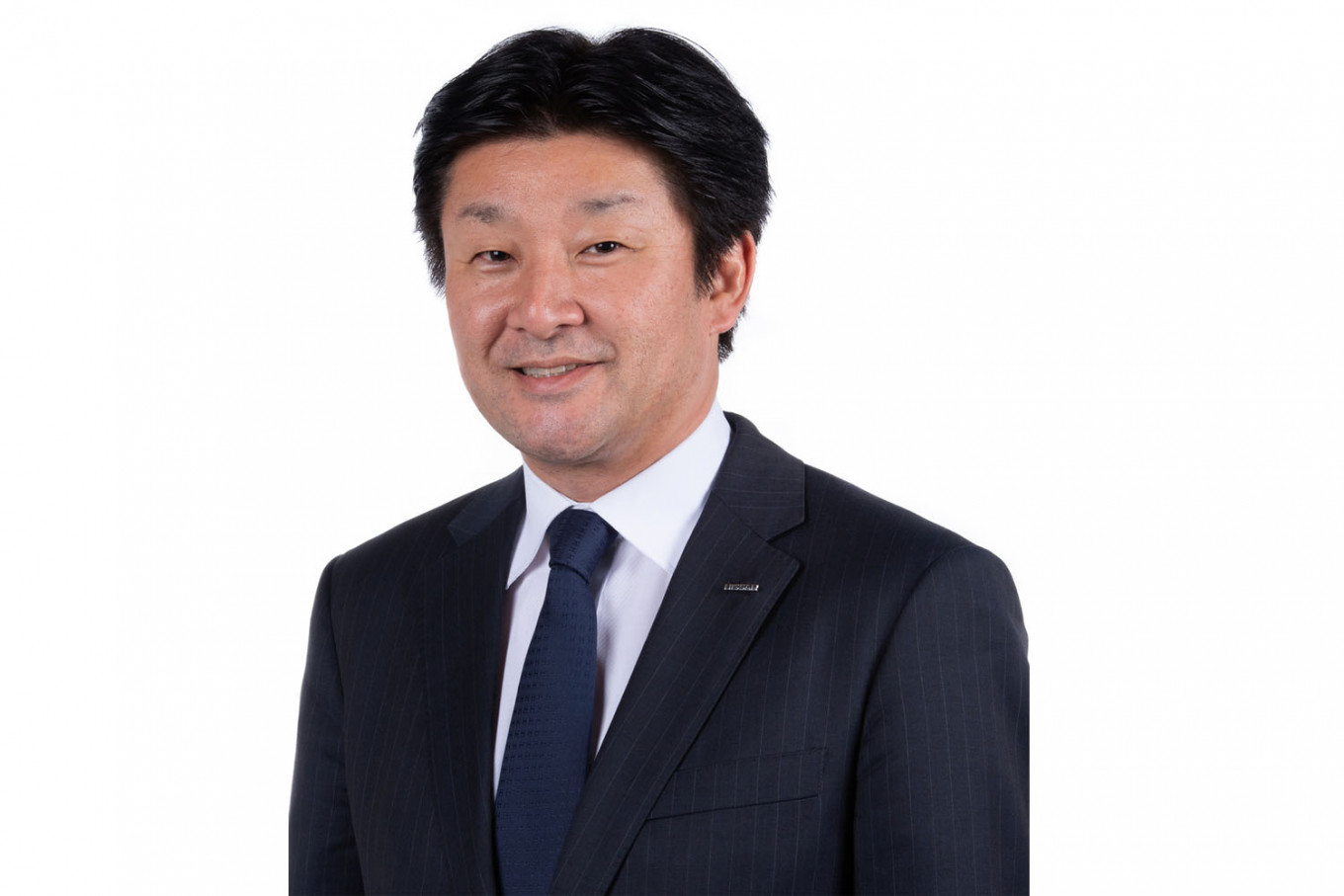N
issan Motor Indonesia (NMI), the local arm of Japanese carmaker Nissan Motor, has officially closed its plant in the country following discouraging sales and a global restructuring plan to improve the brand’s finances after reporting a US$6.2 billion loss for the 2019 fiscal year.
However, NMI plans to keep strengthening its presence in the country and to realize its ambition to
introduce electric vehicles (EVs) to Indonesia’s market despite a potential headwind from the COVID-19 pandemic. Indonesia’s car sales in April nosedived by more than 90 percent year-on-year (yoy) to 7,871 units amid slowing economic activity due to the outbreak.
The Jakarta Post’s Prima Wirayani and Mardika Parama talked online with NMI president director Isao Sekiguchi on June 15 to learn more about the automaker’s business strategy in Indonesia after the plant closure and its plan to weather the impacts of the pandemic. Below is the excerpt of the interview.
Question: What is NMI’s strategy after its Indonesian plant closure?
Answer: Nissan is going to continue to bring new products to Indonesia and continue to serve our
customers in terms of spare parts and services and we are going to continue to be here. Moving forward, our strategy is to build a global alliance partnership, and in Indonesia’s case, this is with Mitsubishi. We are not going to stop our local production here as we are going to utilize Mitsubishi’s plants to continue manufacturing cars in Indonesia.
While we still have to rely on our plants outside of Indonesia to fulfill the demand in the short term, our future strategy is to work together with Mitsubishi to produce Nissan cars in their factory.
Is there a product segment NMI will focus on in the future?
Unfortunately for us, we have to stop marketing our low-cost green cars (LCGC) segment under the
Datsun brand. It was a tough decision to make. Now, we are focusing our models on sport utility vehicles (SUVs) and multipurpose vehicles (MPVs), which are going to be slightly higher in terms of price range than what we had before.
We projected that the SUV and MPV segments, which are relatively higher in price, will see a comeback sooner than entry-level cars and LCGC, as [the latter] segments have a more challenging [lower income] customer base.
Our current strategy is not to chase volume, but rather concentrating on products that we think represent Nissan in terms of product, features and driving feeling. We are not focusing on sales volume, but we want to make sure that we can provide customers with the right products.
The automotive industry is currently under pressure from the economic impacts of the COVID-19
pandemic. How does Nissan plan to navigate through this challenging situation?
Our plan is to continue working together with financial institutions to provide an affordable financial
scheme for customers who are seeking to purchase a vehicle, as the financing capability for purchasers is going to be tough. However, I am not so pessimistic about the future when looking at Indonesia’s market in terms of population and the country’s fundamental economic growth.
We will see in steps how the government gradually reopens the economy. For instance, Japan has just ended its state of emergency and they have started taking steps to reopen the market and consumer spending is returning.
What will be Nissan’s targets for the Indonesian market in the future?
For the short term, we are not aiming to increase our market share to a certain level, but we are focusing more on how we will present Nissan as a brand, and what products will we bring to the market that will represent our brand. Even though globally we are aiming to reach a 6 percent global market share by 2023, its okay if we [in Indonesia] do not reach that level. From a global perspective, we will have a higher market share in some markets than others.
Could you share with us the progress Nissan has made it its EV ambitions in Indonesia?
Nissan at various occasions and times has announced that we are going to bring EVs to Indonesia in 2020. Our EV introduction plan has not changed, even though the mass launch of EVs may be delayed until spring of 2021 due to the pandemic. Hopefully, we will have some units heading to Indonesia this year.
We also plan for Indonesia to be one of the first markets to receive the Nissan Kick, a hybrid model, in August. We initially did not plan to introduce the Kick E-Power for another six months but we decided to pull ahead and introduce it this summer, to show our EV commitment to Indonesia.
We are also definitely going to bring the Leaf EV model to the country. We recently decided to put the [model’s] pilot car in Jakarta to make an introduction. Nissan is also going to launch the second model with a world premier next month, and now we’re working to bring this new model to Indonesia as well.
The timing is still being reviewed because of COVID-19. Another one may also be in the pipeline.
I can’t give you the exact number but that’s more or less our future perspective on EVs, as we’re going to be focusing on electrification technology for our new models.
Gallant Ventures Ltd. as the parent company of NMI’s Indonesian partner Indomobil Group recently
divested its 18.9 percent investment in your company amounting to Rp 330 billion (US$23.3 million). Has the divestment impacted NMI’s financial situation and operations?
Actually, there has not been any impacts from that incident. Mr. Anthoni Salim [Gallant Ventures’
substantial shareholder] fully understands what’s going on with Nissan and the NMI situation as well. We have been together for more than 20 years and we continue to collaborate in areas where we can work together.










